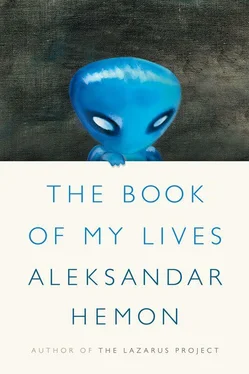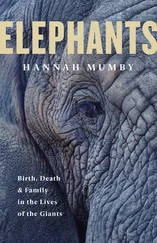2
An eventful century or so ago, my paternal ancestors left behind what was then Galicia, the easternmost province of the Austro-Hungarian Empire (now western Ukraine), and resettled in Bosnia, which had recently been annexed to the Habsburg domain. My peasant foreparents brought with them a few beehives, an iron plow, many songs about leaving home, and a recipe for perfect borscht, a dish previously unknown in that part of the world.
There was no written document, of course; they carried the recipe within themselves, like a song you learn by singing it. In the summers of my childhood, which I spent at my grandparents’ house in the countryside of northwest Bosnia, a committee of aunts (sometimes actually singing a song) would start early in the morning, chopping various vegetables, beets included, then, under my grandmother’s supervision, boiling them mercilessly on a woodstove in the infernally hot kitchen. The Hemon borscht contained whatever vegetables were available in the garden at the time — onions, cabbage, peppers, pole and other beans, even potatoes — plus at least one kind of meat (though, for some reason, never chicken), all of which was purpled by the beets to the point of being unidentifiable. I’ve discovered that no one in my family knows exactly what should go into borscht, though there is a consensus that it must contain beets, dill, and vinegar. The amounts and proportions change with the cook, just as a song changes with the singer. As far as I can tell, it never bothered any Hemon that there was always at least one mystery ingredient in the borscht on the table. (Carrot? Turnip? Peas?) Whatever the variation, no bad borscht was produced. The vinegary tartness, always refreshing in the summer; the crunchy beet cubes (beets go in last); the luck-of-the-spoon-draw combinations of ingredients, providing different shades of taste with each slurp — eating borscht was always eventful, never boring.
I can still see my grandmother, the senior borscht cook, with an enormous, steaming pot in her hands, wobbling from the kitchen out to the yard, sweat drops sliding off her forehead and into the borscht for that special final touch. She’d deposit the pot on a long wooden table, where the Hemon tribe was waiting, aflutter with hunger. Then it would be ladled out, with at least one piece of meat distributed to each of the mismatched bowls on the table. There were often so many of us that we had to eat in shifts; one summer, my sister and I counted forty-seven people at my grandparents’ for lunch, most of them related to us. Among the Hemons, the intensity of the slurping is proportional to the enjoyment of food, and the borscht that day yielded a symphony.
Festive though it may have been, the country version of the Hemon family lunch was not a ceremonious meal. Served in the middle of a workday, lunch was supposed to provide nourishment and reprieve for those who had worked the fields in the sun and would return to work until sunset. Thus, whatever we ate had to be simple and abundant, and borscht fit the requirements perfectly. Like all the dishes that are traditional in my family — pierogi/ vareniky , which are, really, potato ravioli, or steranka , dough boiled in milk, the very mention of which brings tears to my father’s eyes — borscht is poor people’s food. It was designed (if indeed it was ever designed, rather than just randomly concocted) not to delight the sophisticated senses but to ensure survival. Anything ingested by spoon is close to the top of the survival-food pyramid on which my family bases their nutrition, and borscht is, without a doubt, the spooniest dish there is. (The point of sushi shall remain puzzling to generations of Hemons to come.) Borscht must be cooked in a large pot, it must feed a large number of people, and it ought to last well beyond one meal. (I don’t remember us ever running out of borscht; the pot was always magically bottomless.) It is an essential leftover dish, always better the next day. It is definitely not something to be cooked for two people; you do not meet a friend over borscht, let alone share it with a date by romantic candlelight, even if you are able to suppress the slurping urge. There is no wine that matches it. A perfect borscht is a utopian dish: ideally, it contains everything ; it is produced and consumed collectively; and it can be refrigerated and reheated in perpetuity. A perfect borscht is what a life should be but never is.
In the early, lonely days of my life in Chicago, I often struggled to reproduce the pleasures of my previous existence in Bosnia. I nostalgically sought good — I didn’t expect perfect — borscht. But what I found at Ukrainian restaurants or in supermarkets with ethnic-food shelves was merely thin beet soup, and I was forced to try to reconstruct the family borscht from my addled memory. I’d make a pot for myself and live on it for a week or two. But what I made in this land of sad abundance was nowhere near what I remembered. I was always missing at least one ingredient, not counting the mystery one. More important, there is nothing as pathetic as solitary borscht. Making borscht for myself helped me grasp the metaphysics of family meals — the food needs to be prepared on the low but steady fire of love and consumed in a ritual of indelible togetherness. The crucial ingredient of the perfect borscht is a large, hungry family.
1. VOLENS-NOLENS
I became friends with Isidora when I was in college, at the University of Sarajevo, in 1985. We had both transferred to General Literature: she from Philosophy, I from Engineering. We met in the back of our Marxism class. The Marxism professor had his hair dyed hell-black, and had spent time in mental institutions. He liked to pontificate about man’s position in the universe: man was like an ant holding on to a straw in a biblical flood, he said, and we were too young to even begin to comprehend how dire our metaphysical situation was. Isidora and I bonded over tear-inducing boredom.
Isidora’s father was a well-known chess author, good friends with many a famous grandmaster, including Fischer, Korchnoi, and Tal. He reported from world-championship matches and wrote a large number of books about chess; the most famous one was for beginners: the Chess Textbook ( Šahovska čitanka ), essential for every chess-loving household, including ours. Sometimes when I visited Isidora, she would be helping her father with correcting the proofs. It was a tedious job of reading back transcripts of chess games to each other (Ke4 Rd5; c8=Q b7; et cetera), so they would occasionally sing the games, as if performing in a chess musical. Isidora was a licensed chess monitor, and she traveled the world with her father, attending tournaments. She would come back with stories about all the strange people she had met, as chess attracts all kinds of characters. Once in London, she told me, she’d met a Russian immigrant named Vladimir, who claimed that Kandinsky had merely been a Red Army officer running a workshop of anonymous artists and then appropriating their paintings as his own. True or not, the story implied that the world was a terribly interesting place, where there was more than met the eye even in Kandinsky.
We were bored in Sarajevo; it was hard not to be. We had ideas and plans and hopes so big, we thought, they could change the small-city staleness, and ultimately the world. We always undertook unfinishable projects and never finished them: once we started translating from English a book on the Bauhaus, but quit after the first paragraph; then a book on Hieronymus Bosch, but never reached the second page — our English was not very good at all, and we had neither good dictionaries nor much patience. We read about and discussed the artists of Russian Futurism and Constructivism, and we were attracted to the revolutionary possibilities of art. Isidora was constantly thinking up performances in which, for instance, we would show up somewhere at the crack of dawn with a hundred loaves of bread, and make crosses out of them. It had something to do with the dawn of the new era and Khlebnikov, the poet, as the root of his name, hleb , was the common word for bread in many Slavic languages. We never did it, of course — just showing up at dawn was a sufficient obstacle. On the steps of the People’s Theater in Sarajevo, she staged a performance based on The Mountain Wreath , the classic Serbian epic poem, featuring a few of her friends (though I didn’t take part) who were less worried about the subversive messages of the performance than about the possibility of the random passersby heckling them in that particularly menacing Sarajevan way.
Читать дальше












